Cyclone Idai anniversary: ‘My great satisfaction is watching families rising up again’
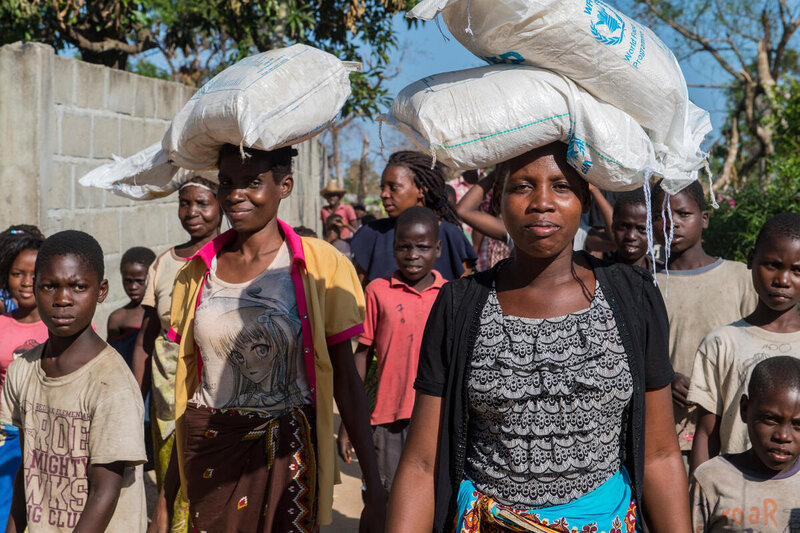
Two years ago, Abel Cossa, a field monitor with the World Food Programme (WFP), had the most intense experience of his life. An urgent work call took him to Beira, the capital of Mozambique’s Sofala province, which was hit by Cyclone Idai on 15 March 2019. Abel was on the ground distributing food as Idai devastated tens of thousands of lives, killing 603 people — and a further 700 people across Madagascar, Malawi and Zimbabwe.
By August of that year, WFP food assistance reached more than 1.8 million people as the organization helped communities pick up the pieces in the wake of Idai and then Cyclone Kenneth, which came a month later, killing 45 people.
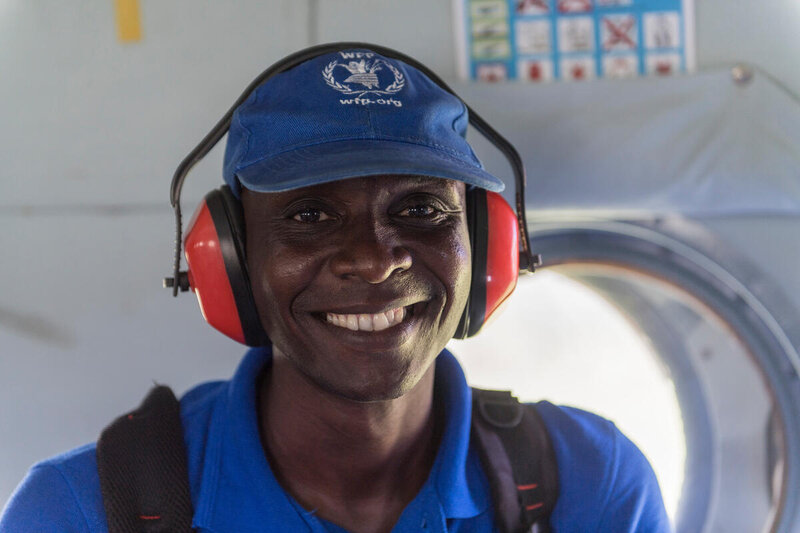
“WFP had anticipated the cyclone would create massive destruction, so we were on standby and able to start food assistance to the affected people in the first hour,” says Abel. “I spent a month in the city of Beira distributing cornmeal and soy in the shelters to people who’d lost everything.”
Idai crushed livelihoods and displaced people in four provinces and 50 districts. It destroyed homes and flooded 700,000 hectares of crops.
'People who are desperately in need of food and are facing hunger do not want to wait — they cannot wait'
In the first month of emergency assistance, Abel began making daily helicopter trips — which were new to him — from the airport to deliver food to districts that had become completely isolated.
“At first I was scared, but after 30 days of flying every day I even got used to it,” he says. “By air we were able to reach people in the most inaccessible villages. It was a challenge because people who are desperately in need of food and are facing hunger do not want to wait — they cannot wait”.
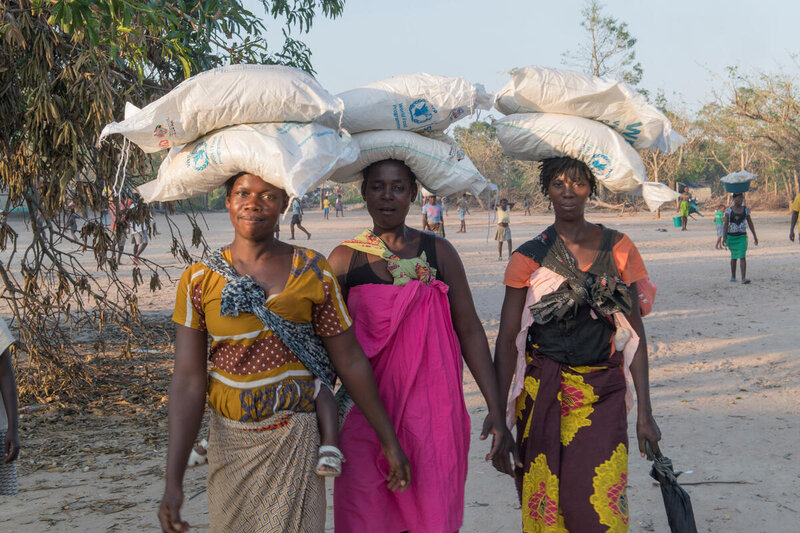
Photo: WFP/Rein Skullerud
After the acute emergency phase, Abel started working in the Nhamatanda district, in Sofala province, providing food assistance in the post-cyclone reconstruction phase. In Nhamatanda district alone, WFP assisted 60,000 affected families with its monthly food basket.
“My great satisfaction is seeing the families rising up again,” says Abel. “WFP's food assistance has enabled people to have time and energy to work to rebuild their homes and replant their machambas [subsistence crops such as cassava, peanuts, beans, corn and rice] destroyed by the cyclone.”
Breaking the cycle
“When I started working after Idai, I almost cried when I saw people made homeless because they’d lost everything,” says Abel. “Today, it is a pleasure to enter the communities we assisted and see that the houses are rebuilt and life is almost back to normal,” he says.
Abel is involved in a resilience-building programme giving families food assistance to work on their small crops or to recover assets in their communities, everything from bridges to schools. He adds: “Families have managed to recover their crops and are no longer dependent on food assistance. Together with partners in the field, we teach techniques for people to produce more with less space.”
Between November 2019 to April 2020, WFP continued assisting 588,135 people in Sofala province during the 'reconstruction' phase. Then from May to October 2020, WFP supported 54,430 people in 28 resettlement centres and an additional 45,000 vulnerable people in communities.
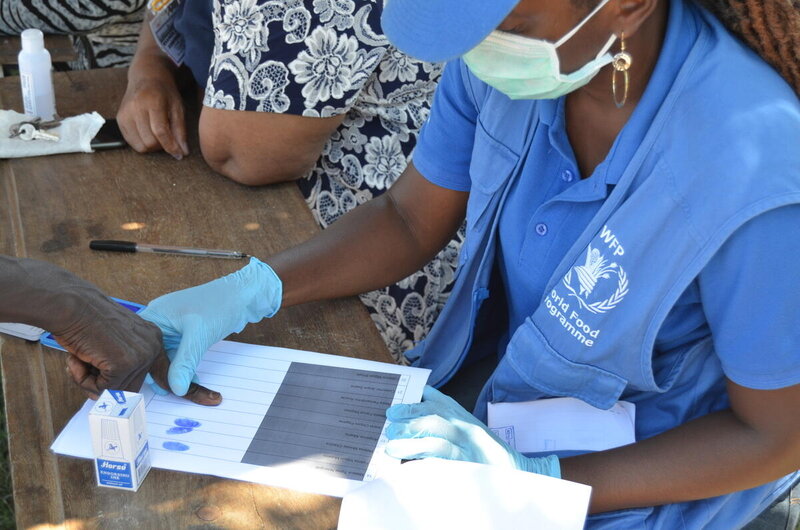
Photo: WFP/ Yuri Andrade
Despite the progress made by the families supported by WFP, almost two years after Idai, two new cyclones, Chalane and Eloise, have hit the same region of Sofala province again. “My home in Nhamatanda lost its roof after cyclone Chalane struck”, says Abel, “660 families were left homeless.”
In late December, cyclone Chalane made landfall in Sofala province, killing seven people and destroying houses and crops. Weeks later, cyclone Eloise made landfall harder in the same place. According to the Government of Mozambique, more than 441,000 people were affected, nearly 44,000 were displaced; 745 classrooms were damaged or destroyed, affecting over 83,000 schoolchildren.
Building resilience
“After providing emergency humanitarian assistance, WFP engages communities in resilience and recovery activities supporting with the creation of assets and training, which contributes to restoring livelihoods”, says Espinola Caribe, head of Beira Sub-office.
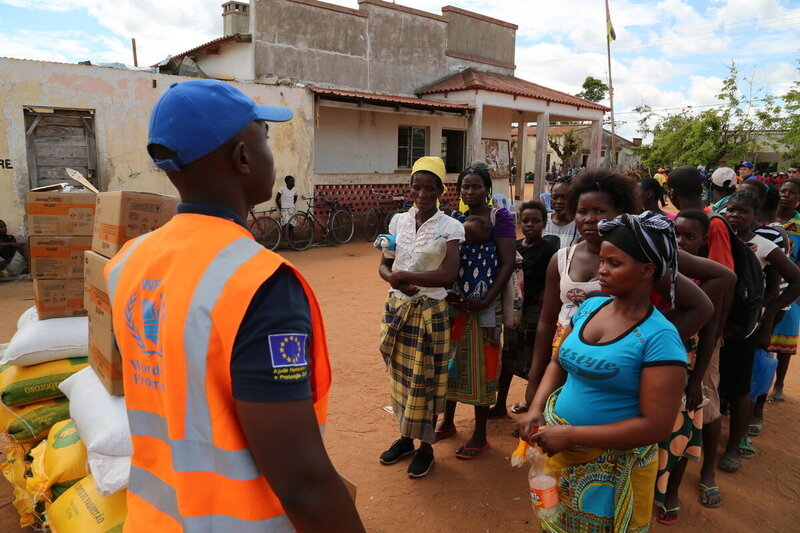
Photo: WFP/Alexis Masciarelli
“WFP has designed a long-term recovery plan to help cyclone-affected people to get back on their feet,” says Antonella D’Aprile, WFP Mozambique Country Representative.
Abel sums it up: “The message is one of hope, food assistance combined with help for people to improve their lives works. We need to continue ”.
In the two years after cyclones Idai and Kenneth, WFP programmes have supported 2.1 million people thanks to the generosity of donors. These include: Austria, Belgium, Brazil, Canada, China, Croatia, Denmark, the European Union, Germany, Iceland, Ireland, Japan Kuwait, Luxemburg, Malta, Monaco, Norway, Portugal, Qatar, South Korea, Russia, Spain, Sweden, Switzerland, United Arab Emirates, United Kingdom, United States. Also: UN CERF, World Bank, Big Heart Foundation, Cartier Philanthropy, Dreyfus Foundation, DSM, Ericsson, Global Alliance for Improved Nutrition, Herbalife LTD, International Society of Transport Aircraft Trading Foundation, Japan WFP Friends, Latter-Day Saints Church, Michael Kors, Mastercard, Mozambique Rovuma Venture, CANADEM, the Norwegian Refugee Council, Syngenta, Total Mozambique and Corredor Logistico de Nacala.
